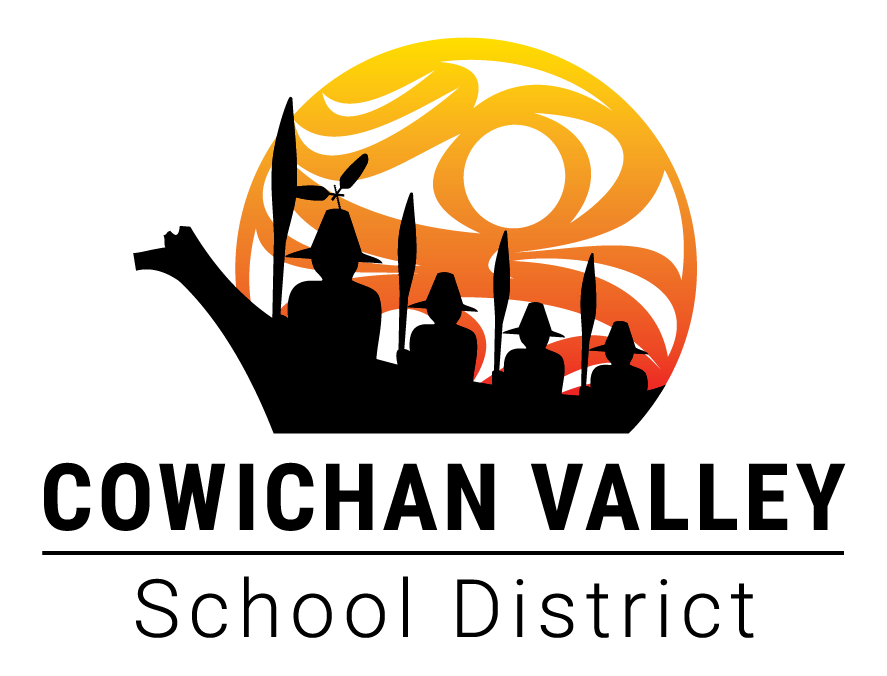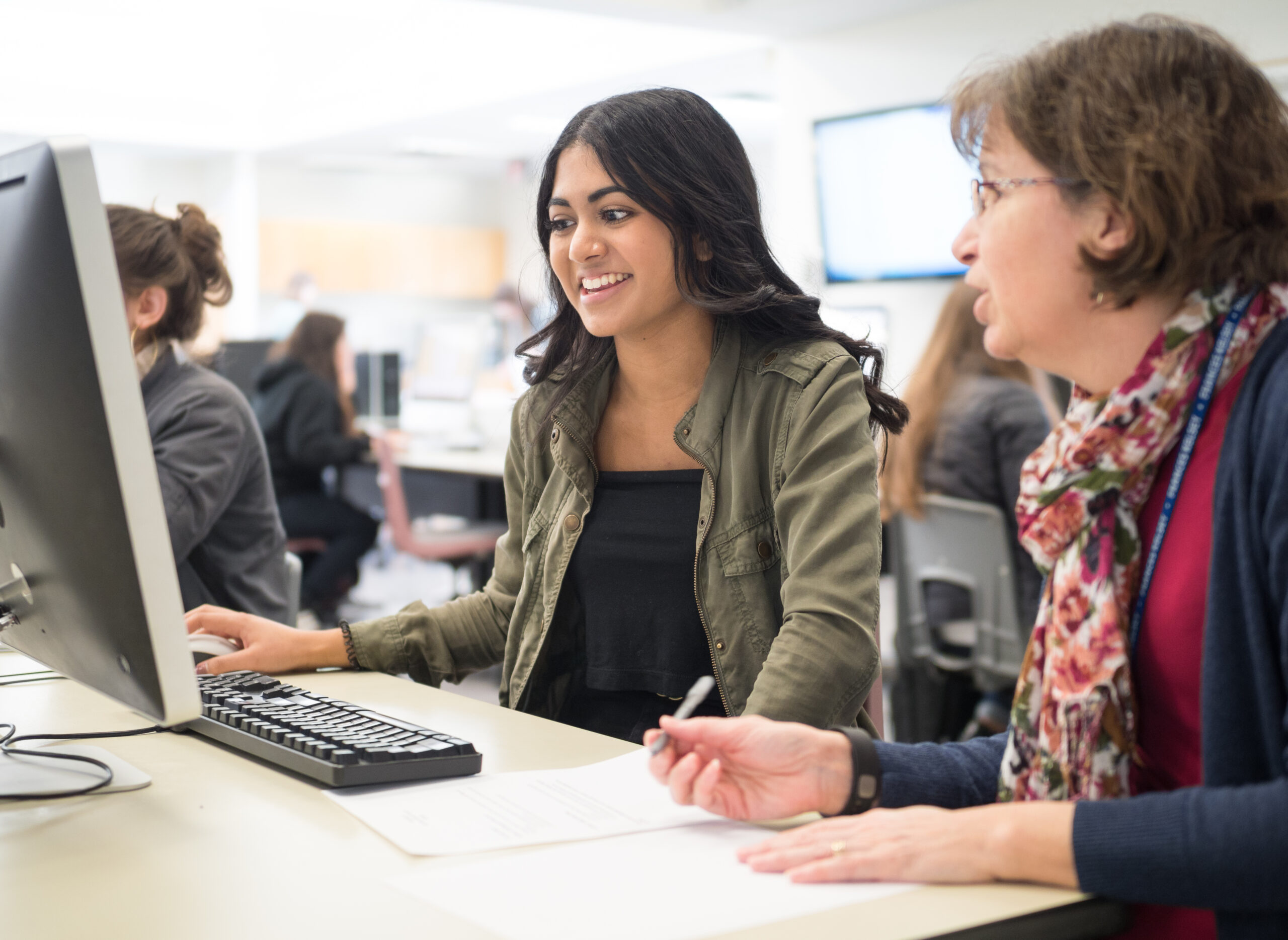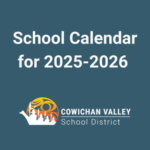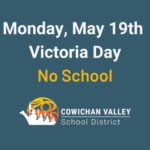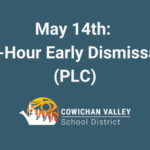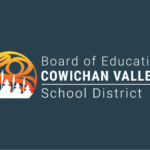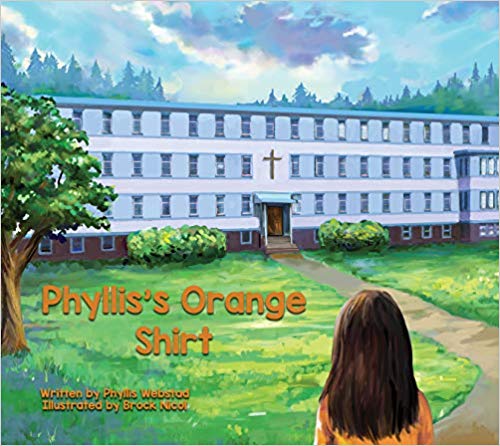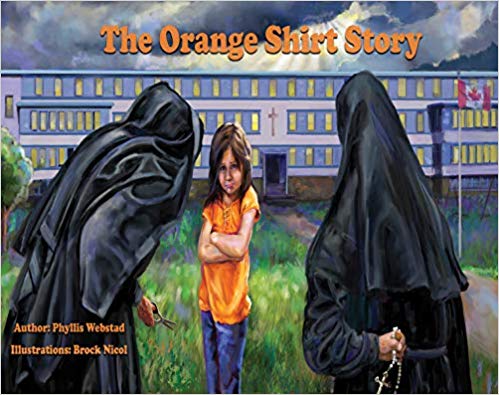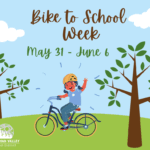
- Parents & Students
-
-
Parent Resources
- Career Programs and Dual Credit
- Child Care Programs
- Curriculum
- District Calendars
- District Contacts Directory
- Early Learning Programs
- Homeschooling Requirement
- Inclusive Learning Support
- Kindergarten Registration
- MyEdBC Login
- Parent Advisory Council
- Transportation Registration
- School Fees
- Student Insurance
- Student Registration
- Transportation
- Winter Weather Information
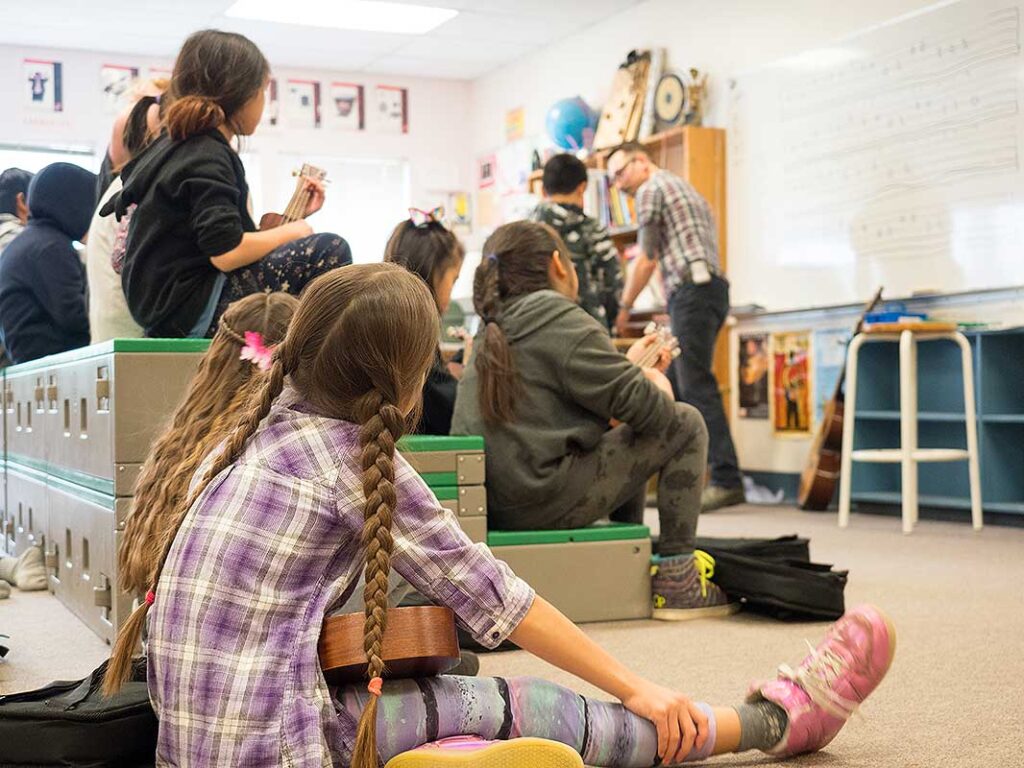
District Parent Advisory Council
- Chair: Carmen Sundstrom
- Email: cowichanvalleydpac@sd79.bc.ca
- Website: dpac.sd79.bc.ca
-
-
- Staff
-
- Employment
-
- Contact Us
-
-
Welcome to Cowichan Valley School District
The Cowichan Valley School District proudly serves learners across many diverse communities. We offer world-class instruction and a rich diversity of engaging programs to help prepare our learners for a world they will create.
Contact District
Phone: (250) 748-0321
Fax: (250) 748-6591
Email: info@sd79.bc.caMailing Address
- 2557 Beverly Street
Duncan, British Columbia
V9L 2X3
- 2557 Beverly Street
-
-
- Donate Now!
Translation Disclaimer
Google Translate is offered as a complimentary tool to improve the accessibility of the Cowichan Valley School District. Therefore, we cannot be held accountable for Google Translate™.
[gtranslate]
- Home
- Board of Education
-
- Schools
-
-
Welcome to Cowichan Valley School District
There are 17 Elementary schools and 5 Secondary schools in the Cowichan Valley School District.
Catchment School
To learn what your catchment school is and to obtain school contact info please use the School Locator tool.
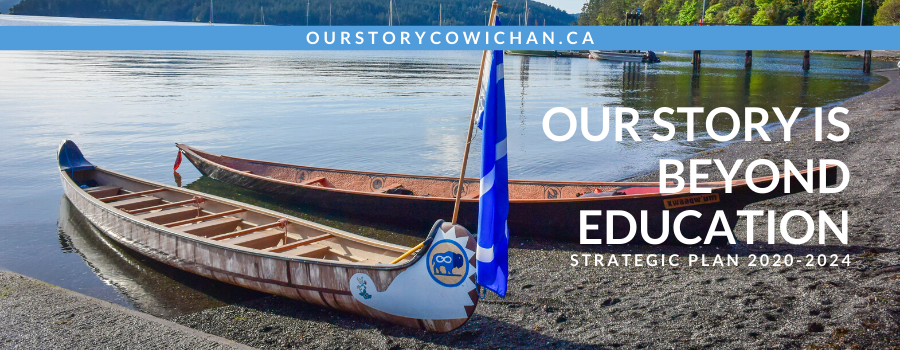
Framework for Enhancing Student Learning (FESL)
Each school has their own plan on how to serve our learners. These plans align with the district-wide FESL and Beyond Education, you can find individual school FESL’s with the below
-
-
- Services
-
-
Nourish Cowichan
Nourish Cowichan provides lunch for all students who need it without barriers such as registration or application.
Please connect with your school office staff for access or more information.
Transportation Registration
Registration for the upcoming school year will open May 1 – May 31 for annual registration.
School Fees
-
-
- Programs
-
-
District Academies
The Cowichan Valley School District, in partnership with a number of organization, offers District Academies to students both within, and beyond, the Cowichan Valley. The various District Academies offer students exceptional choice and the ability to focus their learning in specific areas of interest led by specialists in that field.
-
-
- News
-
- Calendars
-
-
View 2024-2027 School Calendars
- 2024/25 School Calendar – finalized (the non-instructional and professional development days have been confirmed) and includes Early Dismissal days. Early Dismissal days added for PLCs.
- 2025/26 School Calendar – finalized (the non-instructional and professional development days have been confirmed) and includes Early Dismissal days. Early Dismissal days added for PLCs.
- 2026/27 School Calendar
- School Calendar Holiday Breaks (2024/25 to 2026/27)
Frequently Asked Questions
Do you have questions about how the school calendars are created? Please read our Frequently Asked Questions.
-
-
- Parents & Students
-
-
Parent Resources
- Career Programs and Dual Credit
- Child Care Programs
- Curriculum
- District Calendars
- District Contacts Directory
- Early Learning Programs
- Homeschooling Requirement
- Inclusive Learning Support
- Kindergarten Registration
- MyEdBC Login
- Parent Advisory Council
- Transportation Registration
- School Fees
- Student Insurance
- Student Registration
- Transportation
- Winter Weather Information

District Parent Advisory Council
- Chair: Carmen Sundstrom
- Email: cowichanvalleydpac@sd79.bc.ca
- Website: dpac.sd79.bc.ca
-
-
- Staff
-
- Employment
-
- Contact Us
-
-
Welcome to Cowichan Valley School District
The Cowichan Valley School District proudly serves learners across many diverse communities. We offer world-class instruction and a rich diversity of engaging programs to help prepare our learners for a world they will create.
Contact District
Phone: (250) 748-0321
Fax: (250) 748-6591
Email: info@sd79.bc.caMailing Address
- 2557 Beverly Street
Duncan, British Columbia
V9L 2X3
- 2557 Beverly Street
-
-
Translation Disclaimer
Google Translate is offered as a complimentary tool to improve the accessibility of the Cowichan Valley School District. Therefore, we cannot be held accountable for Google Translate™.
[gtranslate]
Resources for Teachers & Administrators
The DLC provides classroom teachers and administrators with access to many learning resources in a variety of media such as books, kits, and DVDs. We also have curated an extensive list of online resources here in our Digital Learning Commons.
Binding
The DLC has two methods for binding materials: coil (cerlox) and Fast Back. Materials are paid for out of school budgets. Binding requests must be accompanied by a service requisition signed by the Principal.
Laminating
Everything from posters to book covers are laminated on a regular basis. Approximately 700 to 1,000 feet of laminating is produced monthly. The cost of laminating is billed to the individual school account.
23.5″ maximum width – maps, posters, etc. that are larger can be folded, which will leave a small seam down the centre. Do not use staples or pins, etc. and do not glue thick objects to items being laminated – they must be flat.
Items for lamination must be accompanied by a service requisition signed by the Principal.
DLC Receptionist & Booking Clerk
- Darlene Hixson
- (250) 748-0321 Ext. 244
Specializing With:
- Booking/distribution of learning resources
- Laminating & binding
- Processing library material
District Resource & Library Assistant
- Marisa Lousier
- (250) 748-0321 Ext. 242
Specializing With:
- Library support
- Learning materials
- Cataloguing & processing
Operating Hours
- Monday to Friday
8 am to 4:30 pm
DLC Delivery Schedule
- Monday – South
- Tuesday – Central
- Wednesday – West
- Thursday – North
Here is where you’ll find information on new additions to the Learning Commons as well as featured resources.
Many teachers are exploring the Applied Design, Skills, & Technologies curriculum. We have hands-on resources for you and your students as well as helpful links.
Physical Resources
Search ADST, coding, design, or maker in the online catalogue. You will find things like:
- Coding Unplugged kits
- Coding Hopscotch
- Beebots & accessories
- Ozobots & accessories
- Cubetto sets & story activities
- Sphero sets and accessories
- Lego Mindstorm kits
- Vex IQ Robotics kits
- Microbits
- And lots more!
Virtual Resources
- OpenSource Lab – A comprehensive website created and curated by Nate Lott & Mike Page
- Code.org – This site has ideas for learning, teaching, and projects, as well as stats about coding
- Createcodeload.com – A teacher-created program for helping students learn Scratch
- Codecombat.com – Learn coding via gaming
The Salish Weave Collection is a private collection of contemporary Coast Salish art that weaves together the distinctive forms and designs of established and emerging artists. The collection stems from and resides mainly on traditional Coast Salish Territories. The purpose of the collection is to support and promote awareness of artists who are contributing to the revival of Coast Salish art.
To access the DLC catalogue, go to your school’s library catalogue or visit cvlibrary.follettdestiny.ca and click on your school. Use your account with Dist 79 Cowichan using same credentials used for office 365.
If you are new to the district it’s possible your name may not be entered in our system. If this is the case, or if you have any questions, please contact us at 748-0321 ext. 244 or at dlcbooking@sd79.bc.ca.
On-line Catalogue Login
Access the District Learning Commons online catalogue here.
Profile Example:
Name: Albert Einstein
Email: aeinstein@sd79.bc.ca
Password: same as Office365
Please Note:
- Orders must be submitted 24 working day hours prior to your next delivery day.
**Please Note: Any orders placed after 12:30 p.m. on a Tuesday for a Wednesday delivery will be too late for the Wednesday delivery and will completely miss the booking process. - Items booked via the on-line catalogue will be sent to you on delivery.
- If you wish to pick an item up please phone your order in at 748-0321 ext. 244.
We are currently building this page. Keep checking back for more online resources related to health and wellness.
Mental & Physical Health
- Kelty Mental Health Resources – (Youth and Young Adults)
- Anxiety Canada
- Action for Happiness (free, registration required)
- ABCs of Mental Health – Hincks-Dellcrest Centre
- Child & Youth Mental Health Toolkits – Hamilton Family Health Team
- CAMH – Canadian Addiction & Mental Health Services
- About Kids’ Health – Mental health information from Toronto’s Hospital for Sick Children
- Kids’ Health – The Nemours Foundation
- Power Up’s Sexual Health Resources – Kerri Isham
Safety
- ERASE – Expect Respect & a Safe Education
- Kids’ Help Phone
- Bullying: What Kids Need to Know
- Kids Against Bullying
- Pink Shirt Day
- Bully Dance
SOGI
- SOGI 123 – Sexual Orientation and Gender Identity
We have a selection of Indigenous Education kits and books; check out the DLC online catalogue for more information. This page offers online resources.
Licensed Online Resources
- Canoe Kids – Download digital issues of this Indigenous education resource by following the instructions on this download page and using your school district email address.
Free Online Resources
- Commemorating Ye’yumnuts
- The Clam Garden Network
- The Royal BC Museum
- Language Map of BC
- First Voices
- Salish Weave Collection
Links to Other Resources
- SD79 Indigenous Education Portal
- SD79 Hul’q’umi’num’ Resources
- SD79 Indigenous Education Links
- First Peoples’ Principles of Learning – Jo Chrona
- First Nations Education Steering Committee – FNESC
- Authentic FP Resources 2016 – This is a comprehensive annotated list of authentic First Peoples resources. It includes an evaluation guide in Appendix 1 (p. 128).
- Learning First Peoples Classroom Resources
- Focused Education K-12 Evaluated Resources Catalogue
- Métis Nation – Library and Archives Canada
- Cowichan Tribes
- Halalt First Nation
- Lake Cowichan First Nation
- Lyackson First Nation
- Malahat Nation
- Penelakut Tribe
- Stz’uminus First Nation
Videos
- Namwayut: We are all one – Truth and Reconciliation in Canada
- How to talk about Indigenous people
- Dust ‘n Bones
- I am Indigenous – 7 Stories
Book Distributors
- Strong Nations – book distributor
- Medicine Wheel Education – book publisher/distributor
How can we provide meaningful home learning experiences that are engaging, equitable, and promote inquiry? How can we be sensitive to the needs and situations of all students and families?
District Pages & Playlists
- Hello Dolly! – Our own District Elder and Knowledge Keeper, Dolly Sylvester, answers your questions.
- Hul’q’umi’num’ Word of the Week – Cultural Teacher, Claudia Sylvester, teaches kids new words in Hul’q’umi’num’.
- Indigenous Education Department – SD79
- Indigenous Resources Page – DLC
- Early Learning – SD79
Read-Alouds
For those teachers who wish to record and post read-alouds, click here for information about relaxed Fair Use regulations and a list of publishers.
- My Hero Is You by Helen Patuck – Download this free book about live in the pandemic.
- Ma Héroine C’est Toi par Helen Patuck – Download the French language version of this book.
- Coronavirus: A Book For Children – This book is free for download.
- Kiddets: Stay Clear, Stay Clean, Stay Kind by Martin Baynton — This book is free to view online or download.
- Kiddets: Reste propre, reste à l’écart, reste gentil par Martin Baynton — This French language book is free to view online or download.
Getting Started
- Zoom 101 For Teachers – Tips and tricks for teachers from teachers.
- Office Basics – Video tutorials
- Remote Teaching with O365
- A Trauma-Informed Approach to Teaching Through Coronavirus – Article
Licensed Resources
- Focused Education Resources (formerly ERAC) – (K-12+) Subscription databases: EBSCO, Gale, National Geographic, World Book, and more!
- National Film Board of Canada – NFB Campus is now free to all teachers. Please use the following links to access our subscription.
ACF-Film Video Streaming (for teachers)
- At school on computer, click on the blue “streaming” icon, then choose “Login IP”. Continue to choose video.
- At school on device, download the Swank Media app and launch the app.
- At home on computer, click on the blue “streaming” icon, then choose “Login Password”. Continue to choose video.
- At home on device, download and launch the Swank Media app, then log in using the username/password given to you by the DLC contact or your teacher-librarian.
Note: ACF-Film monitors our account. This license is for teachers only, not for students. Do not give students login information. This is for educational use. While previewing at home is fine, please do not use for home entertainment.
Networks & Other Districts’ Sites
- BC Numeracy Network
- Vancouver Island Numeracy Network
- Vancouver Island Network – (SD 79 + partner districts) ADST info and activities
- DeltaLearns
- Surrey
- Central Okanagan
- Prince Edward Island – (K-12) Home learning resources from PEI, including French Immersion.
- Saskatoon Public Schools – (K-8) Comprehensive site from our Prairie neighbours that includes French Immersion.
Learn 71 – SD 71 (Comox Valley)
Free Online Resources – Intermediate
- French coming very soon!
- Netflix Documentaries – Netflix has made their educational documentaries available on their Youtube channel. Please consider the ratings in order to make informed decisions for your students.
- Open School BC – Support from the Ministry of Education.
- Science World – Free online documentaries and Omnimax films!
- The Kid Should See This – This is a free collection of 4,500+ kid-friendly videos, curated for teachers and parents who want to share smarter, more meaningful media in the classroom and at home.
- Pearson Education – Textbooks and more
- Wide Open School – This comprehensive collection of lesson plans, videos, information, and activities is hosted by Common Sense Media.
- Western Canadian Learning Network – Build online resources with support.
- ABDO Ebooks – This is a significant collection of ebooks to share with your students. [Free until June 30]
- Ocean School – A collaboration of Dalhousie University, the Ocean Frontier Institute, and the NFB
- Ocean’s Initiatives – Virtual marine biology camp
- CBC Curio – As of now, this dynamic educational resource for teachers is available free but without the following channels: CBC News in Review, BBC, National Geographic. Curio Quick Starter Guide for Teachers
- Khan Academy — Thousands of free videos in all academic subjects. You will need to sign up for a free account.
- Thoughtful Learning – Teaching writing and inquiry online. Includes videos, mini-lessons, assessments, and teacher’s guides. [Free for the time being.]
- Imagineering in a Box – Disney & Khan Academy present an ADST focus.
- Scholastic Databases – Includes BookFlix, ScienceFlix, TrueFlix, Shared Reading, and GO! [Free until the end of June]
- TED Ed Talks – This is a comprehensive list of TED Education talks for many academic areas and includes a link to TED Ed. Each talk listed contains a lesson plan with questions.
- EBSCO – EBSCO Education is offering free study packets and online magazines. Just scroll to Resources to Support Distance Learning. *We also have a paid subscription to EBSCO through Focused Education.
- Learning A-Z –Includes: Raz Kids digital library of leveled books and quizzes for interactive reading practice, and; Headsprouts adaptive online reading program. [Free until end of June]
- ABDOZoom – Online research for beginning readers [Free until the end of June]
- Into the Book – Reading comprehension activities
- Oxford Owl for School – Literacy and numeracy activities and games, plus free ebooks. Sign up your class.
- Epic Books – Epic has made their books accessible remotely for students, but teachers must invite them. Ask your teacher-librarian about Epic.
- Knowbuddy Books – Knowbuddy has made their virtual book catalogue free until the end of May. Choose your area, click on the book, then click the arrow to the far right of your screen to open the book.
- Big History Project (free, registration required)
- Newsela (free, registration required)
- Digital Promise – Challenge-Based Learning
- Royal BC Museum – The museum has an education arm.
- TeachBC – BCTF curated resources
- VIRL – Vancouver Island Regional Library is offering online library card registration as well as free wifi outside of their branches. Online, you can access a variety of resources like Tumblebooks and a collection of ebooks/audiobooks.
- Canadian Museum for Human Rights – Take a virtual tour and browse filtered collections.
- Commemorating Yeyumnuts – UVic’s website all about the Yeyumnuts archaeological site
- Clam Garden Network – This site teaches about the cultural and ecological importance of clam gardens and traditional clam management.
We have curated a collection of learning activities designed to support your children to talk, read, think, move, and play. Learning is fun– and it doesn’t just happen at school!
Strong Start
- Strong Start at Home — On Facebook, you must request to join this Cowichan group.
Websites
- POPEY Home Learning Resources – The Provincial Outreach Program for the Early Years has put together Tips for Home Learning and a Home Learning Menu.
- Wide Open School – Hosted by Common Sense Media, this is a large collection of learning opportunities available to families and teachers.
- CBC Kids – Information, videos, and games
- PBSKids.org – Videos and games
- The Kid Should See This – This is a free collection of 4,500+ kid-friendly videos, curated for teachers and parents who want to share smarter, more meaningful media in the classroom and at home.
- Scholastic Learn at Home
- Lego: Let’s Build Together – Fun and games with Lego online!
- Entertain Kids On a Dime – 100 activities to do at home; includes crafts and games
- ABDOZoom – Online research for beginning readers includes a read-aloud option and vocabulary assistance [Free until the end of June]
- Growing Book By Book – A list of “Online Read-alouds, Story Times, Singalongs, and Illustrating Tutorials To Do From Home”
- National Geographic for Kids – Most of the site is accessible at no cost.
- Oxford Owl for Home – – Literacy and numeracy activities and games, plus free ebooks!
- Fresh Air Learning – Outdoor activities and crafts
- Funbrain.com – Games, videos, reading, playground, mathzone
- Storytime from Space – Astronauts read to you from space!
- Kidsactivities.com – Here’s a list of Education companies offering free subscriptions right now. Note: Many of these companies are American, and there may be restrictions for Canadians.
- Audible Stories – Free audio stories right now
- Brainpop.com – Activities for all academic areas
- Starfall.com – Practice phonics skills with these read-along stories.
- Highlights Kids – Articles, games, and cool science experiments
- ABC YA – Math and reading games
- Time For Kids – Register here for Time’s online magazine for kids. It contains news, worksheets, and quizzes.
- This Reading Mama – Hands-on learning for home or school
- The Measured Mom – Learning at home
- Mystery Doug– Science info and videos for K-5. Also available on Facebook.
- Stenhouse Resources
Stories
- Dav Pilkey at Home – The author of the popular Captain Underpants and Dogman books, invites kids to draw and have fun with him.
- Storytime with Ryan & Craig – Also available on Youtube, Facebook, and other social media platforms.
- The French Experiment – Read-alongs in French
- Storyline Online – A large collection stories read by celebrities. Also available as an app.
- Lunch Doodles with Mo Willems – Children’s book author/illustrator Mo Willems helps children be creative.
- If I Built a School – Chris Van Dusen reads his children’s book.
- For more read-alouds by authors and celebrities, search #savewithstories on Instagram and #operationstorytime on Facebook, Twitter, Instagram, and Youtube.
Fun
- Watch penguins explore the aquarium
- Romper.com – A list of virtual rides
- Canada’s Wonderland – Free virtual rides!
- Disney Virtual Rides – Disney’s Youtube channel
Podcasts for Kids (Ages 2-6+)
- Engage in some powerful listening activities.
Education
- But Why? — The public radio host Jane Lindholm helps answer kids’ most burning questions.
- Earth Rangers — A sound-rich dive into nature and animal science, guided by Ranger Emma.
- Wow in the World — Guy Raz and Mindy Thomas, radio and podcast stars, serve up science news with a heavy dose of silliness.
- Smash Boom Best — This debate show pits two awesome things against each other, encouraging listeners to choose their own winner.
- Animal Sound Safari — This Australian podcast travels in a Magic School Bus-style “safari mobile” to discover animals around the world.
- Pants on Fire — Kids are challenged to “spot the liar” on this game show, co-hosted by a robot.
Stories
- Circle Round — Folk tales from around the world, told with the help of celebrity readers.
- Stories Podcast — A combination of classic children’s stories and original tales.
- Molly of Denali — An eight-episode serialized narrative, based on the PBS Kids series.
- Story Pirates — Stories written by kids are woven into a narrative about a musical-theater company’s magical misadventures.
- What If World — The improvisational storyteller Mr. Eric tells fantastic tales based on “What if?” questions submitted by listeners.
- Girl Tales — Feminist fairy tales written and performed by playwrights and actors.
- Calm Kids Podcast — Two sisters, Lucie and Charlotte (ages 11 and 8), share their original stories.
- Aaron’s World — Aaron, a dinosaur lover, started this podcast when he was a kid to share dinosaur facts. It grew into a narrative adventure series that ran for five years.
Meditation
- Soundwalks — Each short episode is a guided meditation through beautiful soundscapes.
- Bedtime Explorers — Settle down for the night with stories of magical expeditions.
- Peace Out — This calming podcast teaches meditation and self-regulation through stories.
Music
- Ear Snacks — The children’s musicians Andrew & Polly explore different themes through songs and interviews.
- Noodle Loaf — A clever interactive music podcast that features echo songs, musical challenges and a kids’ choir that anyone can join.
- The Music Box — Each episode is a lesson about a musical concept featuring interactive activities.
- Classical Kids Storytime — A sneaky way to introduce your kids to classical music, with the help of children’s stories like Hansel and Gretel.
- Spare the Rock, Spoil the Child — An hourlong show that will introduce the family to the best in kids’ music, every week.
Explore some of these great resources!
Websites
- Wide Open School – Hosted by Common Sense Media, this is a collection of learning opportunities for families and for teachers.
- CBC Kids – Information, videos, and games
- PBSKids.org – Videos and games
- The Kid Should See This – This is a free collection of 4,500+ kid-friendly videos, curated for teachers and parents who want to share smarter, more meaningful media in the classroom and at home.
- Science World – Free online documentaries and Omnimax films!
- Lego: Let’s Build Together – Fun and games with Lego online!
- Paper Architecture – Build cities out of paper!
- Scholastic Learn at Home
- Entertain Kids On a Dime –100 activities to do at home; includes crafts and games
- National Geographic for Kids – Most of the site is accessible at no cost.
- Oxford Owl for Home – Literacy and numeracy activities and games, plus free ebooks!
- Fresh Air Learning – Outdoor activities and crafts
- Funbrain.com – Games, videos, reading, playground, mathzone
- Storytime from Space – Astronauts read to you from space!
- Audible Stories – Free audio stories right now
- Brainpop.com – Activities for all academic areas
- Highlights Kids – Articles, games, and cool science experiments
- Time For Kids – Register here for Time’s online magazine for kids. It contains news, worksheets, and quizzes.
- The Measured Mom – Learning at home
- Vancouver Island Regional Library – VIRL now has online library card requests. With your card you can unlock the ebook/audiobook collection as well as other digital resources. They are also offering free Wifi outside of their branches.
- Stenhouse Resources
Free Videos
- Dav Pilkey at Home – The author of the popular Captain Underpants and Dogman books, invites kids to draw and have fun with him.
- P.E. With Joe – Get moving with this Youtube series!
- Haunted Canada Stories – Author Joel Alexander Sutherland is reading a story a day on his Youtube channel.
- Storytime with Ryan & Craig – Also available on Youtube, Facebook, and other social media platforms.
- Mystery Doug– Science info and videos for K-5. Also available on Facebook.
- The French Experiment – Read-alongs in French
- Storyline Online – A large collection stories read by celebrities. Also available as an app.
- Lunch Doodles with Mo Willems – Children’s book author/illustrator Mo Willems helps children be creative.
- Draw with Rob – Artist Rob Biddulph posts draw-along videos.
- Kenneth Oppel reads – Canadian children’s author Kenneth Oppel reads from his novels.
- For more read-alouds by authors and celebrities, search #savewithstories on Instagram and #operationstorytime on Facebook, Twitter, Instagram, and Youtube.
Subscription Videos
- 150+ Educational Shows on Netflix – Homeschool Hideout’s list
Virtual Field Trips & Live Cams
- Ocean’s Iniatives – Weekly virtual marine biology camps
- 5 Canadian Virtual Field Trips
- Virtual Tours of 12 Famous Museums
- 30+ Virtual Field Trips For Kids
- Live Cams – from the Vancouver Aquarium
- Explore Live Nature Cams – Subscribe to this free Youtube channel.
- Eagle Live Cams – The Hancock Wildlife Foundation’s eagle cams
Fine Arts
- Cirque de Soleil – Enjoy from your livingroom!
Fun
- Watch penguins explore the aquarium
- Romper.com – A list of virtual rides
- Canada’s Wonderland – Free virtual rides!
- Disney Virtual Rides – Disney’s Youtube channel
Explore these great resources!
Websites
- Wide Open School – Hosted by Common Sense Media, this is a collection of learning activities for students and for teachers.
- Khan Academy – Secondary students can navigate this site, but younger kids may want to wait for teacher direction.
- Rick Steeves Classroom Europe+ – This is a free resource allowing teachers to share the best of European art, history, and culture with their students.
- Brainpop.com – Activities for all academic areas
- Open Culture – Free videos, books, lectures, and courses
- Vancouver Island Regional Library – VIRL now has online library card requests. With your card you can unlock the ebook/audiobook collection as well as other digital resources. They are also offering free Wifi outside of their branches.
- Stenhouse Resources
Free Videos
- Science World – Free online documentaries and Omnimax films!
- The Kid Should See This – This is a free collection of 4,500+ kid-friendly videos, curated for teachers and parents who want to share smarter, more meaningful media in the classroom and at home.
- P.E. With Joe – Get moving with these fun routines!
- We Are Teachers – A huge list of authors and celebrities reading and sharing activities. Scroll down the list to see the offerings for older kids and young adults.
- Kenneth Oppel reads – Canadian children’s author Kenneth Oppel reads from his novels.
- Storyman Virtual Reading Series – Neal Shusterman reads his short stories.
Subscription Videos
- 150+ Educational Shows on Netflix – Homeschool Hideout’s list
Virtual Field Trips & Live Cams
- Ocean’s Iniatives – Weekly virtual marine biology camps
- 5 Canadian Virtual Field Trips
- Virtual Tours of 12 Famous Museums
- 30+ Virtual Field Trips For Kids
- Live Cams – from the Vancouver Aquarium
- Explore Live Nature Cams – Subscribe to this free Youtube channel.
- Eagle Live Cams – The Hancock Wildlife Foundation’s eagle cams
Fine Arts
- 15 Broadway Plays & Musicals Online – This is a mix of free and subscription.
- Sir Patrick Stewart reads a Shakespearean sonnet a day on his social media channels: Facebook Twitter Instagram
- Cirque de Soleil – Enjoy from your livingroom!
Fun
- Hogwart’s Digital Escape Room
- Watch penguins explore the aquarium
- Canada’s Wonderland – Free virtual rides!
- Disney Virtual Rides – Disney’s Youtube channel
- Office O365 Basics — Tutorials
Below is a list of media resources to support learning. Check back soon as these media resources change often.
Learning Resources to Support Classrooms & School Libraries
- Kits
- Theme Kits (Super Kits)
- Models
- Study Prints
- DVDs
- French Language Materials
Audio-Visual Equipment for Loan
- LCD Projectors (computer)
- Digital Cameras
- Video Projector
- Sound System
- Video Cameras
- Slide Projectors
- Screens (from small to large)
- Green Screen
- DVD players
Every Child Matters.
School District 79 respectfully acknowledges Orange Shirt Day on September 30th. Please consider these resources as you and your students travel the path of reconciliation.
Physical Resources
The Orange Shirt Story by Phyllis Webstad tells about the author’s experience in Residential School. It is suitable for grades 3-7 and up. Phyllis’s Orange Shirt is the story rewritten for primary students.
The SD79 Indigenous Education Department has kindly ordered a copy of these books for all schools. Additionally, the DLC has a few copies.Access the DLC’s online catalogue and search “reconciliation” to find out what other resources you might use in the classroom.
Online Resources
- CBC Kids has an informative webpage that includes video of Phyllis Webstad.
- Orange Shirt Day — official site
- Multi-Grade Resources from FNESC
- BCTF Orange Shirt Day Activities (download)
- Five Teaching Ideas for Orange Shirt Day
- Every Child Matters Facebook Page
- BCTF Anti-Racism page
- Witness Blanket – an Opportunity for critical thinking
- CBC article about the Witness Blanket
- Also check out the DLC’s Indigenous Education Online Resources page.
This page is dedicated to helping teachers make the pivot to Emergency Remote Teaching and to support you as you move forward incorporating more technology in your day-to-day practice.
- Helpful Graphics for Remote Learning
- Continuity of Learning Doc from #BCEdChat
- Smart Learning Resources created by Susan Close and team.
- Distance Learning – a gently curated list of resources for teachers from Cult of Pedagogy
- WE weekly Teacher Webinars on Remote Learning
- 10 Tips for Virtual Teaching and Learning
- Thinking Outside the Tech Box
- Questions to Consider
Inquiry and Project-based Resources
- Netflix Documentaries – Netflix has made their educational documentaries available on their Youtube channel. Please consider the ratings in order to make informed decisions for your students.
- Open School BC – Support from the Ministry of Education.
- The Kid Should See This – This is a free collection of 4,500+ kid-friendly videos, curated for teachers and parents who want to share smarter, more meaningful media in the classroom and at home.
- POPEY Home Learning Resources – The Provincial Outreach Program for the Early Years has put together Tips for Home Learning and a Home Learning Menu.
- Pearson Education – K-12 resources.
- Wide Open School – This comprehensive collection of lesson plans, videos, information, and activities is hosted by Common Sense Media.
- Amazing Educational Resources – This is the Really Big List of education companies offering free subscriptions right now. You might want to look at our collection below before diving in here.
- ABDO Ebooks – This is a significant collection of ebooks to share with your students. [Free until June 30]
- CBC Curio – As of now, this dynamic educational resource for teachers is available free but without the following channels: CBC News in Review, BBC, National Geographic. Curio Quick Starter Guide for Teachers
- Khan Academy – Thousands of free videos in all academic subjects. You will need to sign up for a free account.
- Scholastic Databases – Includes BookFlix, ScienceFlix, TrueFlix, Shared Reading, and GO! [Free until the end of June]
- EBSCO – EBSCO Education is offering free study packets and online magazines. Just scroll to Resources to Support Distance Learning. *We also have a paid subscription to EBSCO through Focused Education.
- Learning A-Z – Includes: Raz Kids digital library of leveled books and quizzes for interactive reading practice, and; Headsprouts adaptive online reading program. [Free until end of June]
- ABDOZoom – Online research for beginning readers. [Free until the end of June]
- Into the Book – Reading comprehension activities.
- Oxford Owl for School – Literacy and numeracy activities and games, plus free ebooks. Sign up your class.
- Epic Books – Epic has made their books accessible remotely for students, but teachers must invite them.
- Knowbuddy Books – Knowbuddy has made their virtual book catalogue free until the end of May. Choose your area, click on the book, then click the arrow to the far right of your screen to open the book.
- Royal BC Museum – The museum has an education arm.
- TeachBC – BCTF curated resources.
- VIRL – Vancouver Island Regional Library is offering online library card registration as well as free wifi outside of their branches. Online, you can access a variety of resources like Tumblebooks and a collection of ebooks/audiobooks.
- Crossword Solver – Free online crossword solver and crossword help.
Professional Development Resources
- NCTM 100 Days of Professional Learning – 60 minute free webinars
- Ontario Association of Math Educators – free virtual conference
- Desmos Webinars – Free Math Graphing site …. and more
- Global Math Department – Online math conferences and webinars
- Dylan Wiliam video series on formative assessment
- Engaging All Learners in the Middle Years – webinars hosted by SD61
- Fountas and Pinnell Classroom Literacy Webinar Series
- SET-BC – check under capacity tab for opportunities
Resources for CUPE and USW staff learning at home
| POPARD – Provincial Outreach Program for Autism and Related Disorders AFIRM Modules (Autism Focused Intervention Resources & Modules) | Autism Community Training (ACT) Autism Video Learning Streams: | SET-BC has the following resources: Recorded workshops Self Directed Courses Technology Tutorials |
| CanFASD Foundations in FASD is a basic training course intended for everyone that will come into contact with individuals with FASD. | CanFASD FASD for School Staff Level II is an advanced training course intended for all educators working with students with FASD including all administrators, teachers, educational assistants, ECE’s, office admin, Board personnel and bus drivers. | POPFASD Collection of POPFASD-developed resources in addition to curated resources from around the web. |
| North Star Paths Self Regulation Professional Development Modules | Shelley Moore – Inclusion Specialist Five Moore Minutes videos | Culturally Responsive Teaching – Zaretta Hammond Website |
With thanks to Julie Conroy and Courtenay McGeachy for their contributions.
Many publishers of children’s books have relaxed their Fair Use regulations in order to allow teachers to record and post read-a-louds for their students.
- Abrams
- Annick Press
- ARP Books
- Arsenal Pulp Press
- At Bay Press
- Bloomsbury
- Breakwater Books
- BWL Publishing
- Capstone
- Candlewick
- Chronicle Kids
- Cormorant Books
- Crabtree Books
- Disney Publishing
- Dundurn Press
- Greystone Kids
- Groundwood Books
- HarperCollins Children’s Books
- Holiday House
- HMH
- INhabit Education Books
- Inhabit Media
- James Lorimer & Company Ltd.
- Lee and Low
- Lerner
- Linda Leith Publishing
- Little, Brown Young Readers
- Macmillan
- New World Publishing
- Nimbus Publishing
- Orca Books
- Owlkids Books
- Pajama Press
- Peachtree
- Penguin Random House
- Portage & Main Press
- Quarto Group
- Rebel Mountain Press
- Running the Goat, Books & Broadsides
- Scholastic
- Simon & Schuster
- Wordwrights Canada
How can we provide meaningful home learning experiences that are engaging, equitable, and promote inquiry? How can we be sensitive to the needs and situations of all students and families?
District Pages & Playlists
- Hello Dolly! – Our own District Elder and Knowledge Keeper, Dolly Sylvester, answers your questions.
- Hul’q’umi’num’ Word of the Week – Cultural Teacher, Claudia Sylvester, teaches kids new words in Hul’q’umi’num’.
- Indigenous Education Department – SD79
- Indigenous Resources Page – DLC
- Early Learning – SD79
Licensed Resources
- Focused Education Resources (formerly ERAC) – Subscription databases: EBSCO, Gale, National Geographic, World Book, and more!
- National Film Board of Canada – NFB Campus is now free to all teachers. Please use the following links to access our subscription.
ACF-Film Video Streaming (for teachers)
- At school on computer, click on the blue “streaming” icon, then choose “Login IP”. Continue to choose video.
- At school on device, download the Swank Media app and launch the app.
- At home on computer, click on the blue “streaming” icon, then choose “Login Password”. Continue to choose video.
- At home on device, download and launch the Swank Media app, then log in using the username/password given to you by the DLC contact or your teacher-librarian.
Note: ACF-Film monitors our account. This license is for educational use. Home use for secondary school students with teacher direction and parent knowledge is allowed at this time during the week only. Contact your teacher-librarian or dlc@sd79.bc.ca for username and password.
Networks & Other Districts’ Sites
- BC Numeracy Network
- Vancouver Island Numeracy Network
- Vancouver Island Network – (SD 79 + partner districts) ADST info and activities
- DeltaLearns
- Surrey
- Central Okanagan
- Prince Edward Island – (K-12) Home learning resources from PEI, including French Immersion.
- Saskatoon Public Schools – (K-8) Comprehensive site from our Prairie neighbours that includes French Immersion.
Learn 71 – SD 71 (Comox Valley)
Free Online Resources – Secondary
- Netflix Documentaries – Netflix has made their educational documentaries available on their Youtube channel. Please consider the ratings in order to make informed decisions for your students.
- Open School BC – Support from the Ministry of Education
- Science World – Free online documentaries and Omnimax films!
- The Kid Should See This – This is a free collection of 4,500+ kid-friendly videos, curated for teachers and parents who want to share smarter, more meaningful media in the classroom and at home.
- Pearson Education – Textbooks and more
- Wide Open School – This comprehensive collection of lesson plans, videos, information, and activities is hosted by Common Sense Media.
- Indigenous Peoples Atlas of Canada – The online version of this powerful resource. *Available in French!
- ABDO Ebooks – This is a significant collection of ebooks to share with your students. [Free until June 30]
- 60+ Educational Websites for High School – These sites include content for math, science, language arts, social studies, art, and music.
- Ocean School – A collaboration of Dalhousie University, the Ocean Frontier Institute, and the NFB
- CBC Curio – As of now, this dynamic educational resource for teachers is available free but without the following channels: CBC News in Review, BBC, National Geographic. Curio Quick Starter Guide for Teachers
- Khan Academy — Thousands of free videos in all academic subjects. You will need to sign up for a free account.
- Thoughtful Learning – Teaching writing and inquiry online. Includes videos, mini-lessons, assessments, and teacher’s guides. [Free for the time being.]
- Imagineering in a Box – Disney & Khan Academy present an ADST focus.
- TED Ed Talks – This is a comprehensive list of TED Education talks for many academic areas and includes a link to TED Ed. Each talk listed contains a lesson plan with questions.
- EBSCO – EBSCO Education is offering free study packets and online magazines. Just scroll to Resources to Support Distance Learning. *We also have a paid subscription to EBSCO through Focused Education.
- Big History Project (free, registration required)
- Digital Promise – Challenge-Based Learning
- Royal BC Museum – The museum has an education arm.
- TeachBC – BCTF curated resources
- VIRL – Vancouver Island Regional Library is offering online library card registration as well as free wifi outside of their branches. Online, you can access a variety of resources like Tumblebooks and a collection of ebooks/audiobooks.
- Canadian Museum for Human Rights – Take a virtual tour and browse filtered collections.
- International Humanitarian Law – Canadian Red Cross
- Commemorating Yeyumnuts – UVic’s website all about the Yeyumnuts archaeological site
- Clam Garden Network – This site teaches about the cultural and ecological importance of clam gardens and traditional clam management.
Sexual Orientation and Gender Identity and the DLC collaborated on creating a Rainbow Kit for each school site. Ask your SOGI lead about your kit!
- SOGI123 – ARC’s Sexual Orientation and Gender Identity site
- Educational Resources – Elementary and Secondary lesson plans
- SOGI 123 Learning Bursts – 5 minute videos designed as catalysts for discussion
- SOGI Books – Top SOGI book choices for students and teachers
- So You Wanna Start a GSA? – A Gender and Sexuality Alliance Manual (pdf download) — included in Rainbow Kit
- Love Has No Labels
- LGBTQ+ BCTF Resource Pages
- TransCare BC
Links and information pertinent to teacher-librarians
- 15 Stem Youtube Channels
- Canadian Library Association
- British Columbia Teacher Librarian’s Association
- American Association of School Librarians
- From Now On: The Educational Technology Journal
- Ethics of Information Use
- Questioning.org
Sharing the Brainpower
- Teaching with Web 2.0 Tools & Technologies – How can you use online learning tools?
- Getting Connected: Library 2.0 & You – This site contains how-to instructions on 12 online learning tools.
- Readers’ Advisory – All about connecting readers with books.
- Tinkers & Thinkers: The Maker Movement – What are TLs thinking about Maker?
- Digital Literacy for Middle/Secondary –
- Digital Citizenship for Elementary Students –
- The Digital Divide – What is it and how can you start to bridge it?
Here are a few resources to help you maximize your own digital content that you are sharing with your learners.
Office 365
Developed by Vancouver Island and Southern Interior District Resource Centre Coordinators produced in cooperation with PIMA, (Pacific Instructional Media Association)
Mission Statement
District Resource Centres and their staffs provide students and educators with cost effective, equitable District-wide access to learning resources and services through evaluating, acquiring, managing and promoting these resources.
Rationale
District Resource Centres are well positioned to promote and facilitate the implementation of the effective use of learning resources. As the variety and format of learning resources continue to expand, there will be an increasing need to support the integration of these resources and their associated technologies with good teaching practice. Teachers will be faced with acquiring the skills needed to use a wider variety of learning resources in order to successfully integrate them into new and changing curriculums. A District Resource Centre should play an integral role in supporting student learning by providing the essential link between curriculum, school library resource centres and learning resources.
A District Resource Centre should provide the ongoing continuity needed to successfully implement new programs.
As well it plays an invaluable role in linking the curriculum to learning resource components required for effective instruction. Implementation will require the successful integration of information technology with curriculum learning outcomes and effective teaching strategies. A District Resource Centre can provide a teacher-friendly, resource-rich, environment. Given adequate budget and personnel, a District Resource Centre can support the educational programs and goals of schools, the District and the Ministry of Education.
Leadership and Liaison
District Resource Centre staff provide leadership and liaison through the development and promotion of learning resources for use across the District and at the school level.
Professional and support staff at the District Resource Centre are able to:
- collaborate with administrators, teachers, teacher- librarians, trustees and parents to determine policies for the promotion, selection and use of learning resources;
- advocate for the use of a wide range of print, audio-visual, digital and human resources;
- develop short and long term goals for District Resource Centre services based on District and Ministry policies;
- provide curriculum development and support by serving on curriculum committees and advisory groups;
- promote District-wide policies, initiatives and programs;
- organize staff development workshops on the acquisition and use of learning resources and technology;
- act as a liaison with the Learning Resources and Curriculum Branches of the Ministry of Education;
- provide resources and services to parent and community groups;
- support curriculum development and implementation through the selection and circulation of professional materials and curriculum guides;
- improve communications across all areas of the School District by providing a clearing house for materials and/or a publishing centre;
- coordinate the circulation of materials with other districts and agencies;
- promote partnerships with other educational institutions, government agencies, business, industry, and non-profit organizations; and
- promote the use of Canadian produced learning resources.
Acquisition, Distribution and Management of Learning Resources
District Resource Centres have coordinated systems for the acquisition and distribution of learning resources that ensure cost effective and equitable access across the entire School District.
District Resource Centres develop policies and systems which:
- provide cost effective ways to acquire learning resources which may include: a tendering process, bulk purchasing, negotiating site licences, centralized purchasing and identifying jobbers;
- utilize current technology to augment and enhance inventory, processing and distribution of learning resources throughout the District;
- reinforce the concept of equitable access to learning resources;
- maintain an accurate catalogue of learning resources according to established standards;
- develop an efficient system for circulation of centralized and school-based learning resources; and
- ensure the most efficient distribution of learning resources throughout the District.
Evaluation and Selection of Learning Resources
A learner focused educational philosophy and the accompanying emphasis on resource-based learning has made the evaluation and selection of appropriate learning resources a vital component of curriculum implementation. Learning resources to support teaching and learning are best selected by educators at the Provincial, District and School level.
District Resource Centres:
- provide leadership and assistance in the development of district and school-based policies, procedures and criteria for the evaluation, selection and challenge of learning resources;
- identify, in consultation with committees, priority curricular areas for district and school-based purchasing;
- provide information and displays of learning resources to support the selection process;
- build a collection of bibliographic and evaluative sources to provide current information about learning resources and associated hardware;
- foster teacher involvement in the preview, evaluation and selection of learning resources;
- guide the development and implementation of district and school-based learning resources plans;
- maintain a cost effective district learning resource collection to supplement school collections;
- organize pilots and evaluation of selected learning resources;
- organize displays of learning resources; and
- provide inservice on the potential use of instructional technologies and learning resources.
Management of District Resource Centres
The management role provides for the administration of District Resource Centre programs, facilities, services, and staff in order that these may contribute to the stated educational goals of the District and the Ministry.
Management functions include:
- communicating with district staff, school staff, students and the community;
- establishing short and long range goals;
- reporting on the District Resource Centre operations;
- selecting, supervising and planning for the effective use of District Resource Centre professional and support staff;
- developing District Resource Centre facilities and services to support the objectives of the K-12 Education Plan as defined by the Ministry of Education;
- planning for efficient use of space and equipment, and for appropriate security;
- developing and managing a budget that reflects the needs of the instructional program;
- maintaining a current catalogue and an inventory of materials and equipment housed in the District Resource Centre;
- providing a service-oriented environment;
- applying technological advances to District Resource Centre and school library resource centre services;
- involving district and school staff in the evaluation and selection of learning resources;
- acquiring equipment that is most appropriately held and circulated through the District Resource Centre;
- maintaining meeting and seminar rooms to meet the needs of district and school-based committees;
- maintaining a preview area for all media formats; and
- coordinating district ordering of resource materials.
Design and Production of Learning Resources
Media to be used within the instructional framework are determined by the requirements of learning outcomes, course content and instructional methodology. Non-print materials can be obtained from commercial sources or produced locally.
District Resource Centres can:
- advise and assist educators in media design and production;
- provide inservice in media design and production;
- advise and assist students in media design and production;
- provide inservice in media literacy education;
- provide support services such as desktop publishing, graphic production and design, layout, reproduction, laminating, printing etc.;
- produce learning resources such as audiocassettes, slides, photographs, transparencies, video-tapes, multimedia productions, posters, charts, kits, websites etc.; and
- assist in the evaluation and distribution of locally produced learning resources.
Information Technology
District Resource Centre personnel have the ability to promote the use of technology and investigate new resources, technology and services involving information technology.
District Resource Centre personnel support information technology by:
- promoting the acquisition of information skills;
- providing expertise in the selection of educational technologies;
- promoting the integration of current information technologies;
- providing assistance to schools involved with technological change through support and training;
- promoting information access to ensure equity for all students;
- supporting library automation;
- participating in cooperative and coordinated projects that involve information technologies; and
- supporting innovations in information technologies.
District Resource Centre Facilities
The District Resource Centre is designed to provide the effective circulation and use of educational resources throughout the school district.
To accomplish this, the facility should:
- be located centrally in the district to allow convenient access to teachers and staff;
- securely house media resource collections and equipment for loan or production;
- have a layout which facilitates browsing through media materials;
- offer expanded hours of operation (before and after school) to enable convenient access;
- provide space for organizing the shipping and receiving of materials and equipment to schools;
- include space for display, preview and production activities;
- have production equipment set up and accessible for teacher projects;
- be equipped with phone, fax and on-line connections to facilitate communication with district schools, suppliers, Ministry and outside agencies;
- provide an area for use in training on audiovisual and computer technology equipment and techniques;
- house clerical staff to handle inquiries, reservations, shipping and other services;
- provide meeting or seminar rooms that can be booked by teacher or staff groups;
- incorporate distribution of school district mail and other communications; and
- provide technology for requesting, reserving, shipping, cataloguing and organizing media resources.
These are subscription databases you can access at school (IP authentication) and at home (password authentication).
If you do not have the home access password, please contact dlc@sd79.bc.ca or your site teacher-librarian. You may share this password with students.
